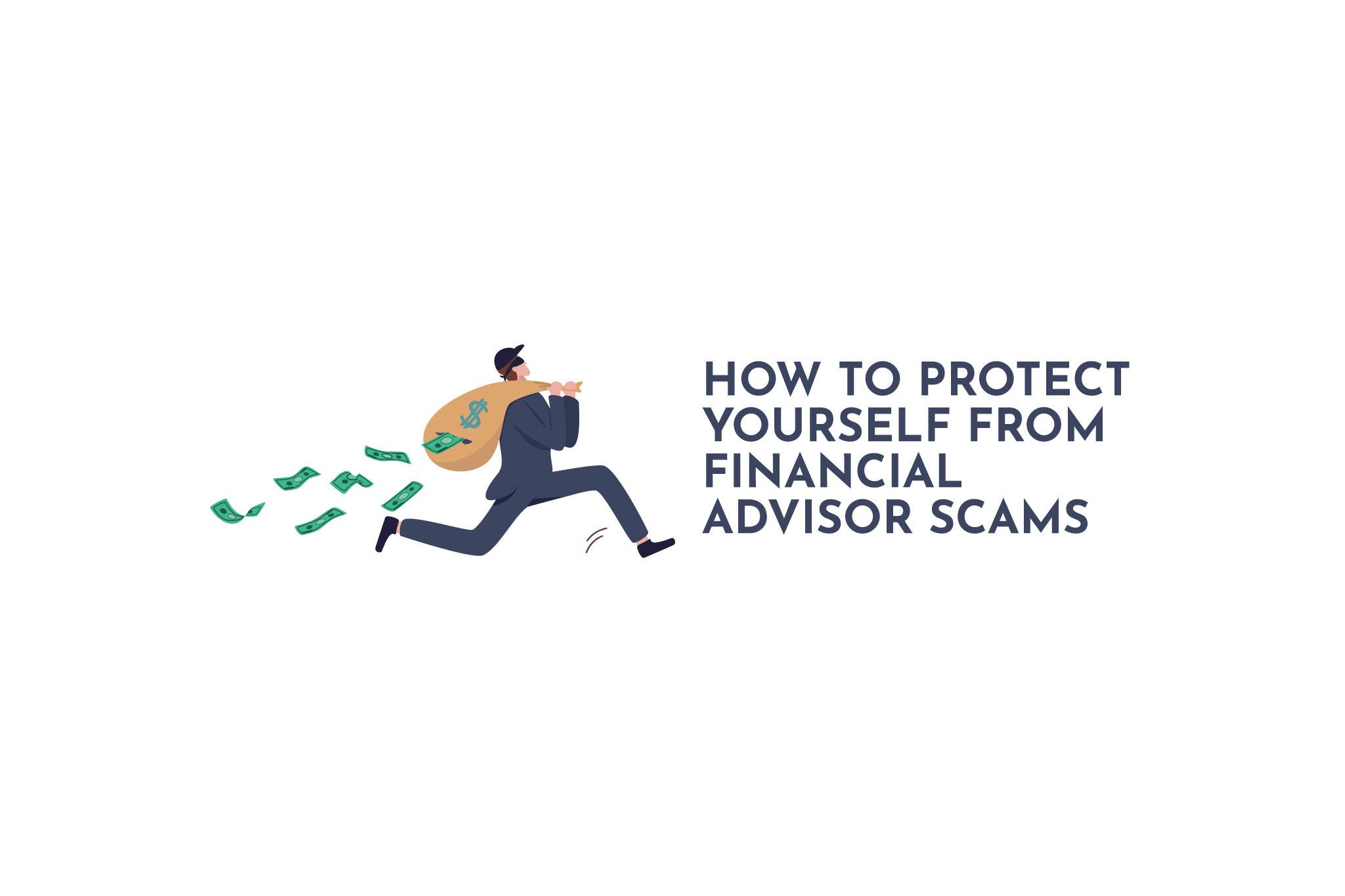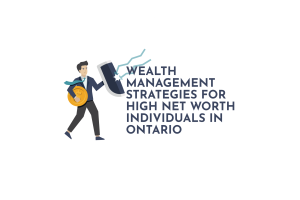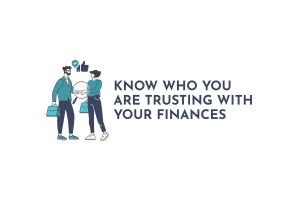Many years ago I was meeting with a client to discuss some estate planning. During our conversation of the details entailed within this process, the client stopped me. I found the next thing that he said was a window into how people not connected with the finance industry feel about things. He told me that he wasn’t concerned with the nuts-and-bolts of how the solution I was suggesting worked. Instead he wanted assurance from me, in my role as his financial advisor, that the plan that we were putting together would work for his unique situation. No financial industry speak was needed, primarily because it didn’t help him understand what was going on. This was an eye opening experience for me, and helped me understand how clients think early on in my career. A financial advisor should be able to explain ideas that may be complex to clients so that they understand what is going on so they can make a truly informed decision.
As a financial advisor there are rules and regulations concerning the idea that I need to know my client. All of my clients should know that I have a fiduciary responsibility to them to always put their interests ahead of my own when it comes to the recommendations that I make. Unfortunately, every once in a while a story pops up about a financial advisor who didn’t take this responsibility to heart. While having a trusting relationship with your advisor is essential, it is still prudent to know some of the tips that follow as ways to make sure that you aren’t being taken advantage of by some unscrupulous advisor.
In this article:
Make Sure You Do Your Research
You can find a lot of information about people by simply typing their name into Google. When you are searching for a financial advisor this can be helpful. You should be able to quickly tell this way if there are any complaints that have been registered about them in the past. If you find something it should prompt you at the very least to proceed with caution. If you see something questionable in the history of your advisor make sure you understand what it is that happened, who was responsible and if it is likely to happen again. It isn’t necessarily the case that if there’s been an incident in the advisor’s past that it will happen again, but knowing all the information you can about someone you are going to trust with your financial security is always a good idea. You should also remember that just taking a meeting with a financial advisor by no means results in you needing to do business with them. One of the best things to do when you meet with an advisor for the first time is to ask them about their core values personally and professionally. This should be an easy answer for the advisor. They should know how to express in a clear and concise manner what their values are. If it feels rehearsed or somehow doesn’t feel right it is always my suggestion that you keep looking, there will be an advisor that you feel you have a good fit with, it’s just that sometimes that won’t be the first person you meet with.

Are Those Alarm Bells I Hear?
Even after you’ve decided to work with a financial advisor there are some things that you want to keep in mind as things that they should never ask you to do. If you run across anything on this list, make sure that you question why you are being asked to do it and that you understand the reason and agree with why you need to complete the request.
- Asking you to sign a form that is not complete – This is a huge no-no from all investment regulators. If your advisor is asking you to sign a form that is missing things like investment instructions, dates etc. you are taking a huge risk. This is because filling the form out after the fact is a possibility and what gets put onto that form when you aren’t there potentially isn’t what you talked about. Make sure that all details, including the dates, are filled out before you sign any forms. Signing a blank form is the equivalent of signing a blank cheque, which we all know is a terrible idea.
- Writing a cheque to the advisor personally – This should never happen when you are investing money. When you make a deposit into an investment account the cheque should be payable to the company that holds the investment. You should not be writing a cheque payable to your advisor to allow them to run it through a ‘house account’ (or a similarly named account) before it goes to the investment company.
- Making sure your statements are authentic – The best thing to do is set up online access to your portfolio. This allows you to go online via your investment management company and look at your portfolio whenever you would like. You should also receive annual (or semi-annual) statements in the mail directly from the investment company. Your advisor’s name will appear on the statement but it should not come from their independent office, they should come directly from the investment company.
- You should never feel pressured – Your advisor should not try to force you into making snap decisions because something is only available for a limited period of time. The truth about the financial industry is that there are rarely things that pop up and make an immediate decision necessary. While there can be timelines that require a decision or an offer can change (think of something like an upcoming birthday that will affect life insurance premiums), it is really rare for a situation to arise unexpectedly that would require you to ‘act now or miss out’. Often this type of pressure applies to a ‘hot investment tip’. Remember, timing the market based on tips is a dangerous way to plan for the future. You should never feel pressure to leap before you look.
- Fancy jargon or confusing sales pitches – You should expect your financial advisor to explain ideas to you in a way that you understand the key details. Things like why it is a good solution for you, how much it will cost you today, and what it costs going forwards. These details should be presented to you in a way that you understand so your decision is based on knowing that the solution is the right fit for you. Not based on the proverbial dog and pony show that you didn’t really understand.
- Understand your risk profile – When you meet with a financial advisor, prior to making an investment they will guide you through a series of questions designed to help establish how comfortable you are with risk. Understanding this process is really important because it is what determines the holdings in your portfolio and how it will perform. If there is more risk than you are actually comfortable with there is a bigger chance you will see unexpected negative returns.
- Does it feel too good to be true? – If it does, there’s a chance it might be. Make sure you understand that there are very few things in life that provide a risk-free, high reward combination. If you are presented with one of these, know that you need to make sure you understand fully what is being offered before entering into it.
- How does the advisor answer if I ask how they get paid? – This is a big question that you should ask your advisor. And understand one fact. This is their job and they get paid for doing it the same way that you get paid at your job. The advisor should be able to clearly answer this question for you so that you understand who pays them and how they get paid. Knowing this information can help you feel sure that everyone is pulling in the same direction when it comes to your investment plan.
- Is the recommendation personalized? – Your situation is unique. While the pieces that make up the recommendation any financial advisor makes to you may be similar, the way that they are applied to your situation should be tailored to your needs. You should not be pigeonholed into the solution that the advisor provides to all of their clients. As an example, if you are risk adverse and are dealing with an advisor that recommends leverage to ‘all of their clients’ you are probably in the wrong place.

The Bottom Line
It makes me sad that I felt the need to write this blog at all. Like most professionals out there, I hate that there are financial advisors who tarnish the reputation of an entire industry, the one I have chosen to work in to boot, by taking advantage of clients who they know don’t understand what is happening to them. Unfortunately that is where we are though. I’ve provided you with some tips about things that should be immediate red flags for you but aside from this my thoughts come back to this fact. Trust your gut. If something doesn’t feel right, don’t do it. If you’re in a situation where you’re being asked to do something that doesn’t feel right and when you hesitate you feel like there is pressure applied to you to do it anyways you should never feel like you can’t ask more questions to get the clarity you need. If you don’t get the answers you need, you can walk away. The decision to not get involved in a situation that your intuition tells you is not right for you is something that you should never regret.
If you feel like you may have been the victim of fraud from a financial advisor you should immediately notify the financial institution you are dealing with. You can gather up all records and paperwork that provide evidence that something unusual has happened with your accounts then you can involve law enforcement and report to the Canadian Anti-Fraud Centre. Depending on what type of investments are involved you will need to report it to the Ontario Securities Commission, the Mutual Fund Dealers Association or the Office of the Superintendent of Financial Institutions. While the process may seem daunting make sure that you report anything suspicious. There’s a good chance that if it has happened to you, others may be involved as well and stopping the suspected fraud from happening to others in the future is a way you can help.




